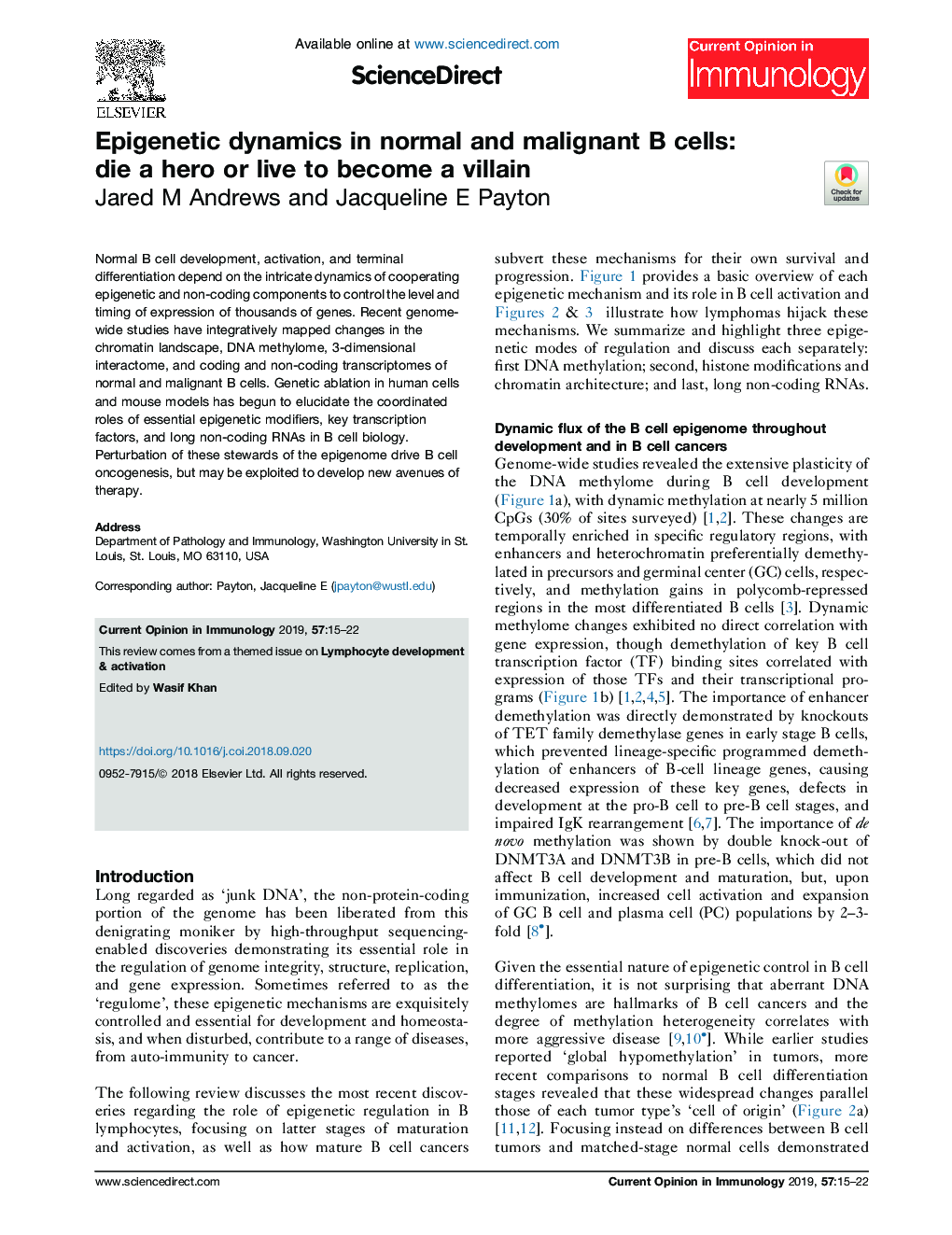| Article ID | Journal | Published Year | Pages | File Type |
|---|---|---|---|---|
| 12121863 | Current Opinion in Immunology | 2019 | 8 Pages |
Abstract
Normal B cell development, activation, and terminal differentiation depend on the intricate dynamics of cooperating epigenetic and non-coding components to control the level and timing of expression of thousands of genes. Recent genome-wide studies have integratively mapped changes in the chromatin landscape, DNA methylome, 3-dimensional interactome, and coding and non-coding transcriptomes of normal and malignant B cells. Genetic ablation in human cells and mouse models has begun to elucidate the coordinated roles of essential epigenetic modifiers, key transcription factors, and long non-coding RNAs in B cell biology. Perturbation of these stewards of the epigenome drive B cell oncogenesis, but may be exploited to develop new avenues of therapy.
Related Topics
Life Sciences
Immunology and Microbiology
Immunology
Authors
Jared M Andrews, Jacqueline E Payton,
